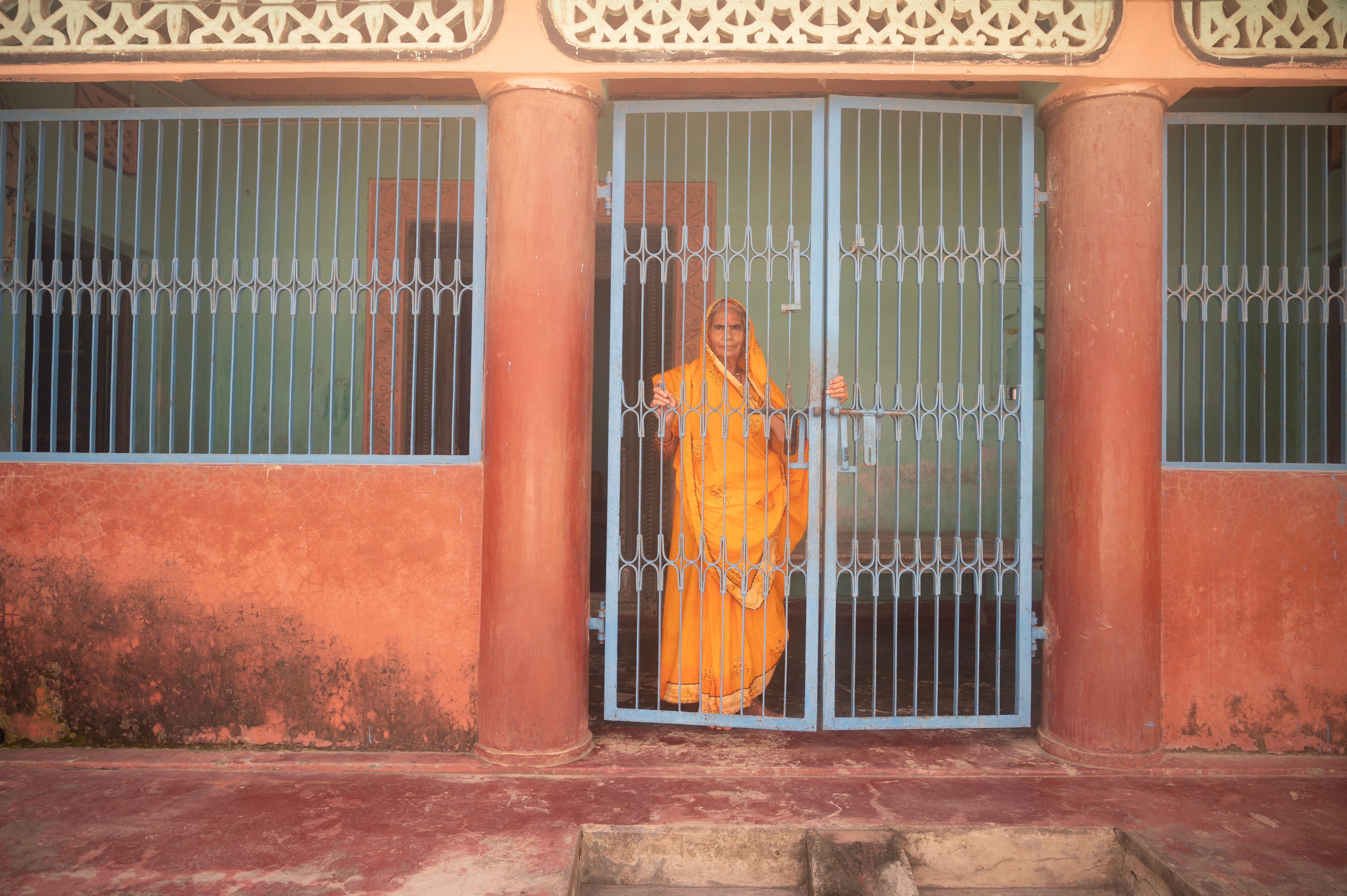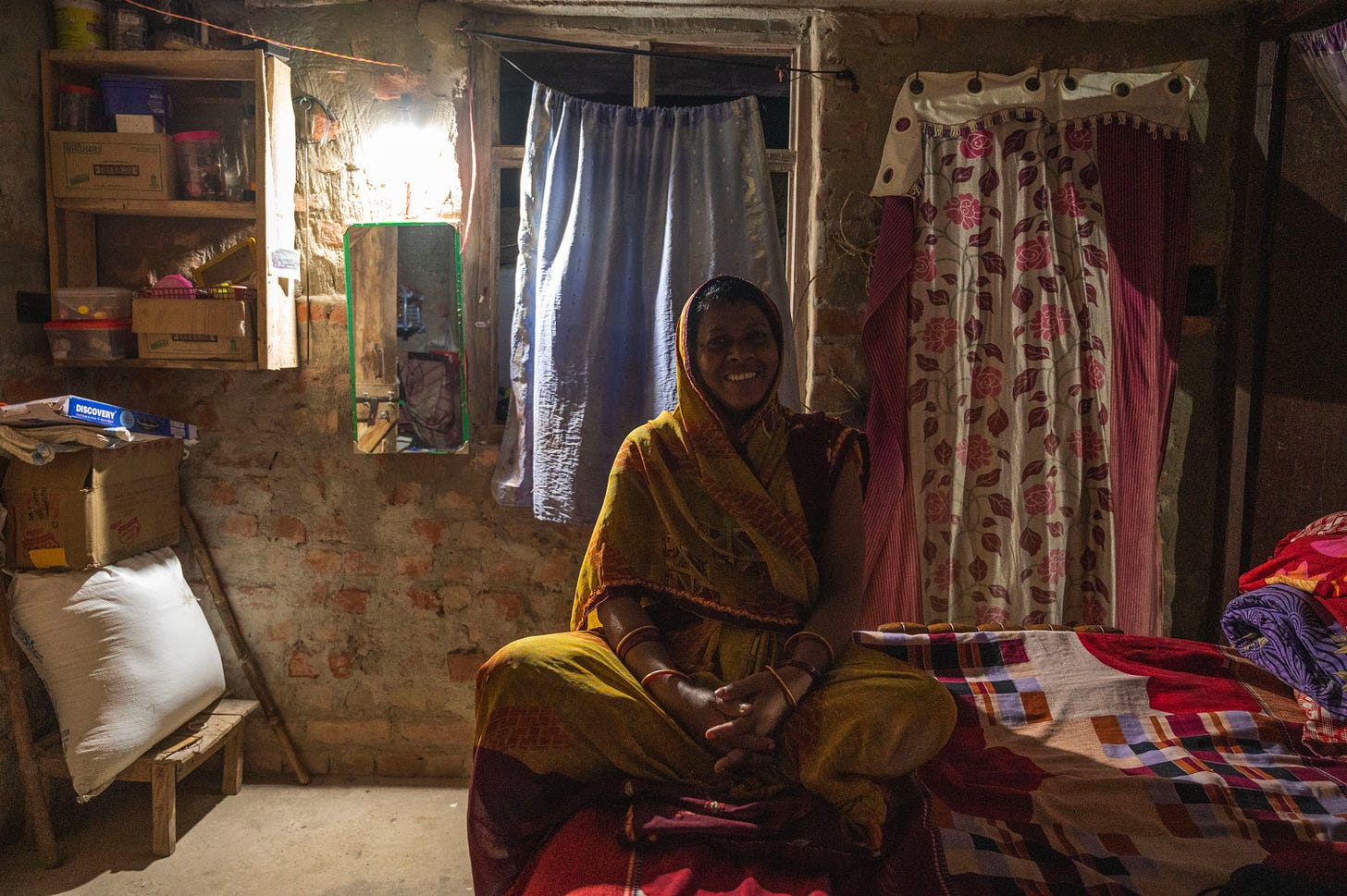Gender and Walking through Bihar
Why more women need to travel - there are stories waiting only for them.

This is the third in a series of articles within the Ghumakkadi project. If you haven’t been following the series, please read the first article for more context.
The idea of gender had been constantly on my mind when we were on the walk. On the previous walks that I’ve been on there has been a similar conversation—on the walk along the Ganga, Nupur Agarwal had also walked with us for a significant amount of time, and had written a brilliant article about it on Veditum’s website here.
The drawbacks of two people, who could be perceived as men, on such an endeavour were the severe restrictions and imbalances that it introduced into the kind of spaces we—and by extension our cameras—were allowed in. We just couldn’t get the same kind of stories that a woman would be able to, which is one of the largest bottlenecks of the current design of the walk, in my opinion. In Bihar, or at least in the three districts we walked through, it was no different. Generally women would not be comfortable interacting with us, and since the home is traditionally thought to be their domain, most of the interactions that we had with people were also in outdoor or common spaces, rather than more intimate spaces like the bedroom or the kitchen.
There were two exceptions to this, and I wanted to write about them. The first was in Mainatand, near the Bihar-Nepal border, where we meant Anita Didi. This was in the first few days of the walk, and we were camping and walking with the Jan Suraaj Padyatra, but had taken an evening out to walk through a nearby village. We were mostly talking to kids, and answering the many questions (most of them repetitions of the same questions) that people on the way would ask us. This is how I got to speak with Anita Didi. She was sitting outside her home, manning her small shop outside her house, and had been curiously looking at us as we approached her.
“Where are you from?” she asked.
“Patna,” came my standard response.
Her eyes lit up! Overjoyed, she told me, “My maika (home ‘before’ marriage) is in Danapur!” Danapur is the next town to Patna. She declared affectionately, “You have come from my maika! Then you are like my brother!”
We spoke for the next 15–20 minutes with a familiarity that for me was astounding; it was as if there was an invisible thread that connected us. Maybe it was the geographical proximity of Patna and Danapur. Or the distance that both of us felt from our homes. Or maybe it was the conditioned intimacy that the familial understanding of being recognized as her brother brought between us. I don’t know. But we spoke like we knew each other from an earlier - forgotten - rendezvous. Meeting her felt the same as if meeting a friend after a long time.
The sun had set, and I left with the promise that I’ll come back the next day and stay for longer. Sure enough, Leo and I were back the following evening, and she invited us into her home, where we sat on her bed and just talked.
She told me about herself, her home, her in-laws, how her father married her off to such a far off place, and how she struggled with settling in her village in Mainatand after she came here. For the first 15 years, there was no electricity, something she wasn’t used to at all growing up. She told us how she cried frequently in those days. Her father passed away soon after her marriage, and her husband has always worked as a migrant worker in faraway cities, leaving her to take care of his parents. Her eyes shone with pride when she told us about how she educated her daughter, who is now pursuing B. Ed and is teaching in a nearby government school. How she had taken a small loan and started the store outside her house, which has gradually grown over the years, through which she—with the help of Indira Gandhi Awaas Yojana - built a ‘pakka’ house of brick and mortar to replace the mud walled house that she lived in for almost two decades. She spoke about how her daughter is her closest confidant and how she has to now leave to work and earn for herself. It is scary for her to be alone after she leaves, but she is against getting her daughter married early like herself.
As I sat and listened, I didn’t know how to feel. For some reason she had felt comfortable enough to let me into her life, and to share her sorrows and joys with us over tea in her bedroom—we who were creatures from a different dimension, travelling through space and time - perhaps just to meet her. When we left that evening, she told us to keep in touch, and that she also felt like we knew each other from a long time. The next day we were to start walking again, but before we left I wanted to meet her once more, so we took the road through her village again and met her before we left. As I walked away, I knew I would come back.

The second interaction that I remember was when we were leaving Purushottampur, another small town near the Bihar-Nepal border in West Champaran. A woman sat on the side of the road, outside her house, weaving something. I asked her what she was weaving, and she told me she’s weaving a dona — a small basket used during chatth puja, which was about three weeks away. When I asked if I could record her, she exclaimed, “Wait!” and hurried into her house. I thought this was the same reaction that women gave us everywhere - reluctant to face the camera, and the strangers behind it. However, she returned momentarily with the many other baskets she had already woven, which she displayed proudly on the road in front of her as she took her seat again. As I recorded her the people of the village started crowding around, as they usually did, and she started getting conscious. But unlike other women we met, she did not stop us, but continued weaving.
In the conversation, she told us that she’s making the dona for her daughter Aarti, who got married four months ago and has left for her new home. This was her first chatth in her new home, and she wanted to make these for her. When the conversation came to her husband, she did not respond, but someone from the crowd muttered that he’s dead. She kept weaving without skipping a beat. When I asked what her name was, she replied, “Nirmala.” Someone asked us why we were recording her, and I told them that in the city we hardly saw anyone make these. We only know them through displays on shop windows. Nirmala Di turned to me and said, “If you want more, you give me a call. I’ll make for you.”
There were parallels between these two women - absentee husband, young daughters they share a close bond with, and a fierce determination to not be dictated to by the harshest circumstances of their lives. I wish I could have had more encounters like these, and I regret that I don’t have more stories from the hundreds of women that we met and passed on the walk. I wonder how many such stories are waiting out there - for eyes and ears from other dimensions, who need to traverse through time and space.
But then there are women out there who are working on getting these stories out. The Moving Upstream Fellowships by Veditum sends mixed gender groups to walk along rivers, and the kind of stories and imagery they are able to collect are amazing. There are films like “WOMB - Women Of My Billion”, where Srishti Bakshi walked, 3800 km through the country. Hopefully there would be more through Bihar too, which has a long history of women travelling as Buddhist nuns.
If you like this blog, you can follow more content from the walk here - videos on YouTube, posts and stories on Instagram, and articles on this blog. If you think our ideas are interesting and would like to know more about the walk, please try and subscribe. We promise we won't spam!
The writer Shridhar Sudhir is an independent filmmaker, academic, artist, and founder of Buddhijeev Studios. You can check out his website here.






